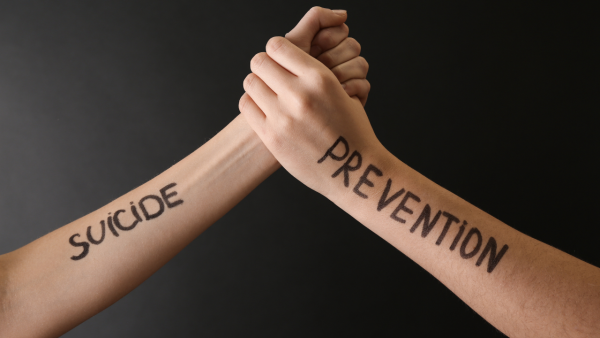
Suicide is the world's second-leading cause of death for those aged 10 to 14 and the third-leading cause for those aged 15 to 24 after homicide and accidents, which is devastating for a family. Teens who are contemplating suicide may exhibit warning indicators that parents should be aware of. These include discussing death, feeling depressed or guilty, avoiding social interactions, losing interest in hobbies, experiencing difficulty focusing, and taking risks.
Teens frequently experience severe emotional difficulties, and it can save lives to identify the warning indications of suicidal ideation. Here is a thorough examination of typical actions that could point to a teen contemplating suicide.
Speaking of a sense of helplessness or guilt
Red flags include statements like "Nothing will ever get better" or "It's all my fault" that convey a profound sense of helplessness, guilt, or worthlessness. Suicidal thoughts are strongly predicted by hopelessness.
Donating cherished items to friends or siblings
As a symbolic farewell, teens who are planning suicide may scatter personal items like jewelry, souvenirs, or cherished novels. This behavior frequently indicates a finality in their thinking.
Speaking of death or suicide in general
Adolescents who are thinking about suicide may publicly talk about dying or declare their wish to pass away. They may say things like "I wish I had never been born" or "It would be better for everyone if I didn't exist." Never write off this kind of language as being just dramatic or attention-grabbing.
Hinting that they might no longer exist
Phrases like "Soon, you won’t need to worry about me" or "You won’t have to deal with me much longer" could be grave signs of suicidal intent. These clues frequently reveal inner conflicts and hopelessness.
Taking risks and acting accordingly
A disregard for one's own safety may be demonstrated by increased involvement in risky activities, careless driving, substance misuse, or other risky behaviors. Such behavior may be a sign of a deeper wish to cause damage.
Withdrawing from family or friends
Teens may withdraw if they are feeling overburdened. They may cease going to family get-togethers or refrain from talking to friends. A worrying change in behavior is withdrawal from social relationships.
Composing poems, songs, on grief, separation, and death
Dark-themed creative expressions can serve as a means of emotional processing. Writing about death or loss frequently, however, could indicate a fixation with these subjects.
Losing interest in engaging in favorite activities or pursuits
An abrupt loss of interest in once-enjoyable pastimes, sports, or activities may be a sign of depression. This disinterest is a telltale sign of more serious emotional problems.

Not being able to focus or think clearly
A lot of stress or mental health issues might make it hard to concentrate on daily duties, academics, or decision-making. Concentration problems might coexist with other signs of depression.
Noticing alterations in their sleeping or eating patterns
Physical indicators of a problem include sleeplessness, excessive sleeping, and sudden weight loss or increase. Emotional distress is frequently associated with disturbances in eating and sleeping patterns.
Losing enthusiasm for sports or education
Another typical indicator is declining academic achievement or leaving extracurricular organizations or sports teams. Mental health crises are frequently accompanied by difficulties with motivation and concentration.
How can one handle these situations with tact?
Every one of these actions needs to be addressed right away. It's critical for parents to take their teen's suicidal thoughts seriously and speak with them as soon as possible. Even though it can be difficult, it's always a good idea to ask. In an emergency, parents should transport their child to the local emergency room for a mental evaluation, summon emergency services, or phone the suicide and crisis lifeline. Even if the youngster seems to be doing better, it's always crucial to keep consultations with mental health specialists. It's imperative to get expert assistance if a teenager exhibits one or more of these symptoms. In order to prevent catastrophe, it can be extremely important to have open discussions, practice active listening, and connect with mental health providers.
Finding support through counseling and support groups can be crucial to the healing process for parents who have lost a child to suicide. It's also crucial to acknowledge a teen's feelings and reassure them that there is no right or wrong way to react when a loved one has attempted or lost their life to suicide.

